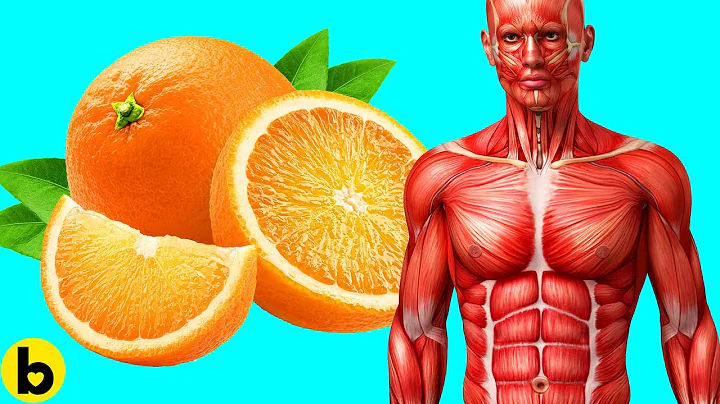Can't eat orange after taking antihypertensive medicine? This is a misunderstanding and rumor.
It is believed that this rumor comes from grapefruit juice (grapefruit juice) that may cause the increase in the body concentration of certain drugs.
Why does grapefruit juice interact with many drugs? This starts with the metabolism of oral drugs. After most drugs enter the human body and are absorbed by the gastrointestinal tract, they will first enter the liver for a round of metabolism. We call this metabolic process the "first pass effect". About 50% of drugs with first-pass effect are metabolized by the liver drug enzyme P450 system, especially the enzyme CYP3A4, which is a liver drug enzyme required for the metabolism of many drugs, and grapefruit juice contains one. A chemical ingredient-furanocoumarin, this substance can inhibit the activity of CYP3A4 hepatic drug enzymes, which leads to inhibition of the metabolic process of oral drugs through the liver and affects the metabolic concentration of the drug in the body.

There are some drugs that need to be metabolized by CYP3A4 liver drug enzymes. Grapefruit juice can inhibit the metabolism of these drugs and cause the concentration of drugs to increase in the blood. High, leading to the risk of drug overdose. On the one hand, drug overdose is the enhancement of drug pharmacological effects, and on the other hand, the risk of adverse drug reactions. For example, our commonly used antihypertensive drug felodipine, if you drink grapefruit juice or eat grapefruit fruits after taking felodipine, it may increase the concentration of the drug in the body, increase the blood pressure effect, and cause hypotension. For example, another type of our common drugs, atorvastatin, simvastatin and other lipid-lowering drugs, if taken with grapefruit juice, will cause the increase of blood drug concentration, causing liver damage, muscle damage The risk of medication for pain and even rhabdomyolysis is increased.

Some friends said that if this furanocoumarin can inhibit the activity of liver drug enzymes, then it is not enough to take the drug in a reduced amount. In fact, the metabolism of drugs is very complicated. The process, the absorption of drugs by different individuals, the inhibition of liver drug enzyme activity in different individuals, the concentration of grapefruit juice, and the content of furanocoumarin are all different. Therefore, it is impossible to say that you have drunk grapefruit. It is appropriate to take the medicine after the juice. Therefore, the best way is to avoid using grapefruit juice or eating a lot of grapefruit when taking related medicines. In addition to the aforementioned dipine drugs and statins, the antihistamine drug terfenadine, the sedative and sleeping drug midazolam, the immunosuppressant cyclosporine, and the antiarrhythmic drug amiodarone are all taking medications It is not advisable to drink grapefruit juice during this period.

And what about oranges? Speaking of oranges and grapefruits, although they are very similar in length and belong to the genus Citrus, in terms of their nutritional and chemical composition, grapefruit is closer to the grapefruit in the fruit, but far from orange. The highest content of furanocoumarin in fruits is mainly grapefruit, and grapefruit, which we often say, also contains a small amount of furanocoumarin, and does orange also contain this substance? A Swedish scientist once studied and determined furocoumarins in a variety of fruits. The two types of oranges involved in the test did not contain furocoumarins. Although there are many types of oranges, it cannot be said that oranges can be proved through one study. There is no furocoumarin in it, but this study can also show that oranges are not the same as grapefruit and are not fruits that contain a lot of furocoumarin.
After taking antihypertensive drugs, you can eat oranges. On the one hand, you don’t have to worry about the problem of inhibiting drug metabolism when eating oranges after taking the medicine. On the other hand, oranges are rich in vitamin C and other nutrients, so eat in moderation. A little fresh orange is also a very important supplement for the balanced nutrition of hypertension patients, so there is no need to worry too much. 清风计划 心英雄 健康真社探
![How to Remember Antihypertensive Drug Classes in Seconds! [Pharmacology Mnemonic] - DayDayNews](https://i.ytimg.com/vi/0PHcxTspcHA/hq720_2.jpg?sqp=-oaymwE2CNAFEJQDSFXyq4qpAygIARUAAIhCGABwAcABBvABAfgBzgWAAoAKigIMCAAQARhfIF8oXzAP&rs=AOn4CLDgLsw0Ij8wWwvUPtxFAY9CeQZMCQ)
![How to Remember Antihypertensive Drug Classes in Seconds! [Pharmacology Mnemonic] - DayDayNews](https://cdn-dd.daydaynews.cc/img/play.svg)



















